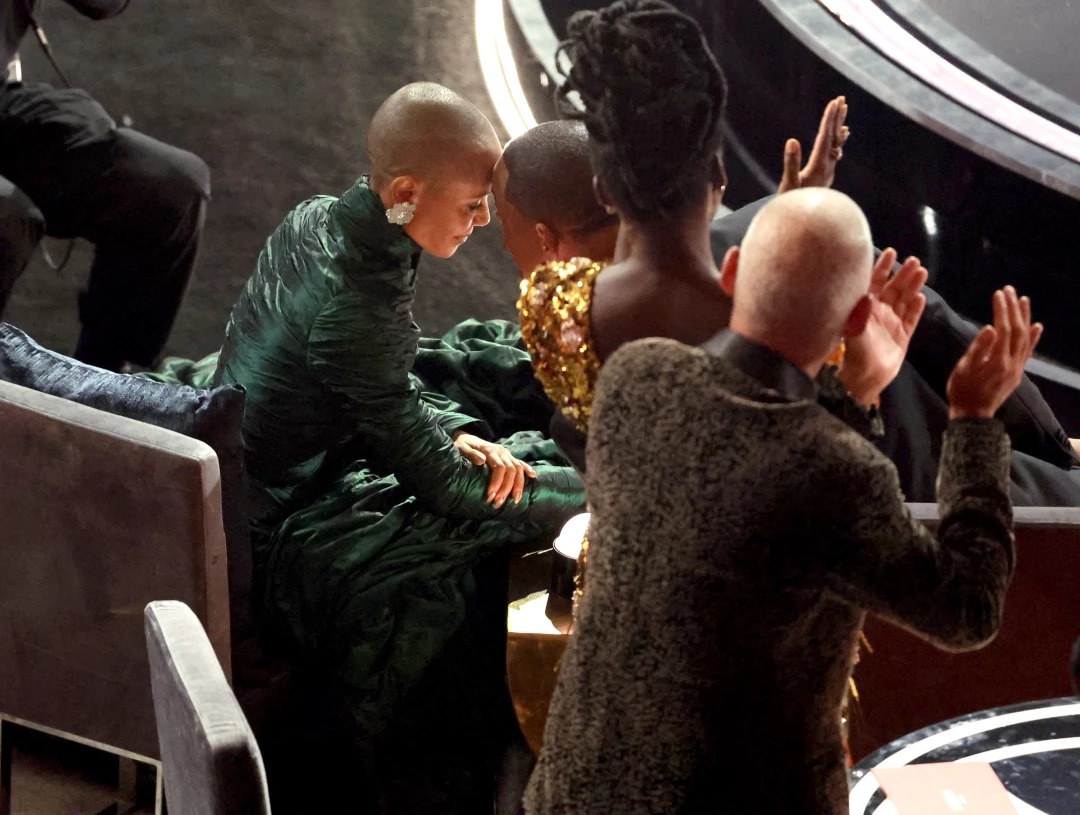
Jada Pinkett and Will Smith
I'm sure you've all heard about the big Will Smith moment during the Academy Awards, but I'm not looking to discuss right from wrong here.
Not in the traditional sense. No. I want to discuss, romance, love, and how the hero is properly motivated to take action.
Romance writers always strive to make sure our hero's actions are well motivated. If not, readers will write scathing reviews about how the characterization didn't work for them. Like the viewers of this incident, many readers can have differing opinions about the same story. (Two seconds on Twitter can show this) Maybe that's because there is missing information or the information is interpreted differently.
Let's say a reader skimmed a section of a story because the pacing was off and didn't have all the information. Using the awards incident as an example, let's say a viewer didn't know about Jeda's autoimmune condition. That little bit of knowledge could change the opinion of a viewer.
Let's motivate it a little more and say, that prior to the awards, a person openly criticized the heroine about her condition and the hero didn't defend her because he cared more about his image than his family. The guilt of choosing his image over family haunted him for hours. Would that cause more motivation?
Sure, but is it enough for you as a reader? Perhaps the antagonist had personally ridiculed the heroine and was warned to not speak about the heroine again prior to the climax of the story where the hero takes action. Would that make a difference?
The point to this is HOW FAR CAN A HERO GO in a story for his heroine before you no longer think of him as a hero? Is there a line for you? If it's properly motivated does that line blur?
Do you have an example from a story that illustrates a hero going further than you thought he should, yet you still root for him?
Not in the traditional sense. No. I want to discuss, romance, love, and how the hero is properly motivated to take action.
Romance writers always strive to make sure our hero's actions are well motivated. If not, readers will write scathing reviews about how the characterization didn't work for them. Like the viewers of this incident, many readers can have differing opinions about the same story. (Two seconds on Twitter can show this) Maybe that's because there is missing information or the information is interpreted differently.
Let's say a reader skimmed a section of a story because the pacing was off and didn't have all the information. Using the awards incident as an example, let's say a viewer didn't know about Jeda's autoimmune condition. That little bit of knowledge could change the opinion of a viewer.
Let's motivate it a little more and say, that prior to the awards, a person openly criticized the heroine about her condition and the hero didn't defend her because he cared more about his image than his family. The guilt of choosing his image over family haunted him for hours. Would that cause more motivation?
Sure, but is it enough for you as a reader? Perhaps the antagonist had personally ridiculed the heroine and was warned to not speak about the heroine again prior to the climax of the story where the hero takes action. Would that make a difference?
The point to this is HOW FAR CAN A HERO GO in a story for his heroine before you no longer think of him as a hero? Is there a line for you? If it's properly motivated does that line blur?
Do you have an example from a story that illustrates a hero going further than you thought he should, yet you still root for him?
